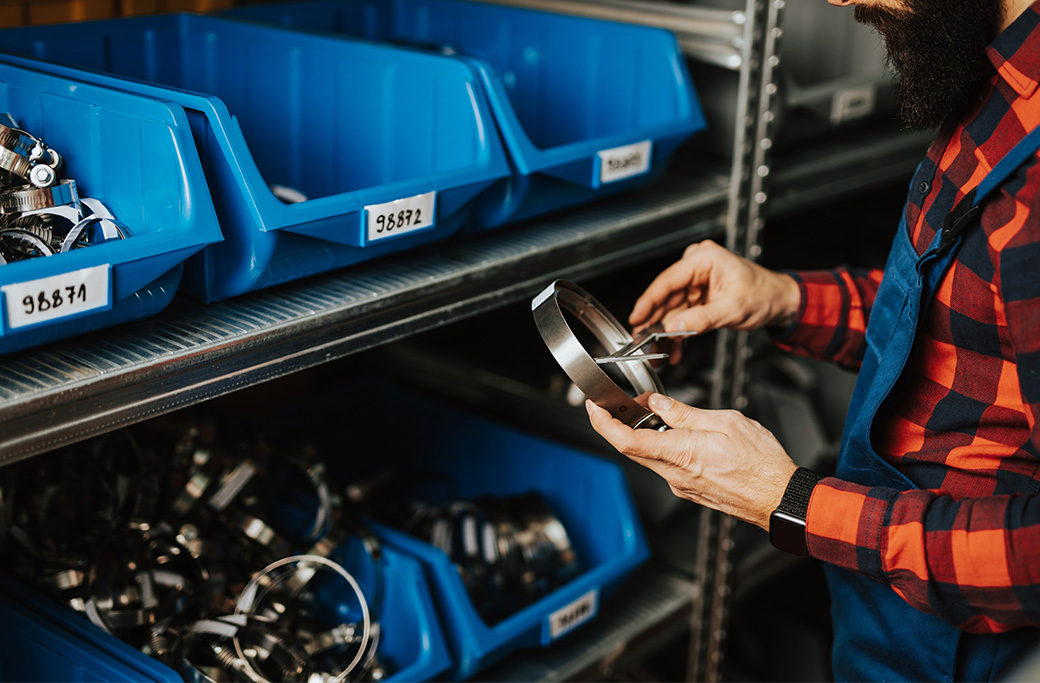Lean manufacturing has become a cornerstone of operational efficiency, focused on minimizing waste and maximizing value. In the labyrinthine setting of a modern manufacturing facility, one seemingly simple but potent tool stands out in the lean methodology – onsite storage. How do smart storage systems play a crucial role in the lean narrative, and what can manufacturing professionals gain from incorporating these solutions? Onsite mobile storage holds immense strategic importance, as it profoundly affects various aspects, such as inventory management, employee productivity, and environmental sustainability. Its impact spans across multiple domains, making it a crucial consideration for businesses seeking operational excellence.
Lean Imperative
Before we dive into the depths of onsite mobile storage in lean manufacturing, let’s take a moment to understand the broad strokes. Lean manufacturing is a management philosophy. It is a renowned method for minimizing waste, reducing production time, and optimizing overall business operations. Lean is not just about cutting costs; it’s a strategic approach that fosters a culture of continuous improvement — an ethos that resonates at every level of the enterprise. At its core, lean manufacturing is characterized by the pursuit of efficiency through several methods, including the standardization of processes, the just-in-time model of production, and the relentless elimination of all non-value-adding activities. But perhaps the least heralded, yet equally significant, aspect of lean in manufacturing is the careful utilization of onsite storage solutions.
Benefits of Onsite Storage in Lean Manufacturing
Improved Efficiency
By having necessary inventory stored on-site, at the point of use, production processes operate seamlessly without the stop-and-go of waiting for materials. This translates to a lean, smooth production flow, ensuring that products move through the value stream efficiently and rapidly.
Reduced Waste
Excess motion, overproduction, and unnecessary inventory are all categorized as different types of waste in the lean lexicon. Well-placed onsite storage minimizes these wasteful elements, ensuring that materials are always at hand when needed and are never too far from the production line.
Streamlined Workflow
The layout and design of onsite storage contribute to a well-organized workplace, fostering a visual management framework. Employees can quickly identify what tools and materials are in supply and if they need replenishing.
Increased Productivity
When materials are readily available and workflows are streamlined, productivity naturally sees an upswing. Workers spend a larger percentage of their workday on the actual value-adding tasks, which is the prime directive of lean manufacturing.
Types of Onsite Storage Solutions
Just-in-Time (JIT) Inventory
JIT is perhaps the most familiar concept in the lean methodology concerning storage. It entails receiving goods only as they are needed in the production process, thereby reducing inventory costs and zeroing in on precise demand.
Kanban Systems
Kanban is a signaling system used in lean and just-in-time manufacturing to trigger the supply of items. A key aspect of Kanban is to keep supplies stocked at only the necessary level, ensuring that production never outpaces immediate needs.
Mobile Storage Solutions
Mobile storage units, designed with multiple compartments and shelves, are specifically engineered to streamline operations by being conveniently brought directly to the assembly line or workstation. This innovative approach significantly minimizes the time and effort required for workers to retrieve essential supplies, ultimately boosting productivity and efficiency in the workplace.
Automated Storage and Retrieval Systems (AS/RS)
AS/RS systems are computer-controlled systems for automatically placing and retrieving loads from defined storage locations. In a lean context, they provide high-density storage and can drastically reduce the footprint of storage areas.
Case Studies: Shaping Success Stories
A notable example of the transformative power of onsite storage is the automotive industry. With the delicate dance of assembling numerous car parts orchestrated with precision, JIT systems and other onsite storage solutions are pivotal in the manufacturing setup.
Another case in point could be high-tech electronic industries. With the constant flux in demand and the value of components at stake, these industries have been at the vanguard of innovative onsite storage practices, showcasing that even small improvements in storage can yield significant advantages in a lean context.
Considerations for Implementing Onsite Storage
Space and Layout
Using space wisely in a lean facility is paramount. The layout must support the workflow, ensure safety, and allow for the smooth operation of equipment. Onsite storage must also be adaptable to the cyclical changes in the production process.
Inventory Management Systems
Incorporating an efficient inventory management system is crucial for the effective operation of onsite storage. Barcoding, RFID, and even IoT-driven systems can provide the necessary visibility and controls to manage stock levels.
Safety and Security Measures
Storing materials on-site requires careful consideration of safety. This includes keeping items stored in an organized manner to prevent accidents and implementing measures to protect against theft or damage.
Scalability
The lean journey is never static, so the ability of an onsite mobile storage system to scale alongside an organization’s growth or adapt to changes in the manufacturing process is vital. It should not only cater to current needs but be future-proof as well.
Role of Onsite Storage in Lean Manufacturing Processes
In the vast world of lean manufacturing, mobile storage units emerge as a subtle yet crucial tool reflecting the core principles of lean processes. From JIT models to Kanban systems, the mobile storage solutions available to us bridge the gap between the theoretical concepts of lean and their practical application on the factory floor. This seamless integration of efficiency and adaptability ensures a smooth and streamlined production process, empowering businesses to thrive in a competitive market. It is clear that no discussion on lean or operational efficiency is complete without acknowledging the profound effects of mobile storage solutions. By understanding, optimizing, and personalizing these mobile storage solutions, companies not only meet the basic requirements of lean practices but also stay agile in the face of industry and market disruptions.
Bringing an orchestrated harmony between storage and production is key, and Mobile Storage can help you pave the way. As manufacturing continues to evolve, those who leverage the full potential of mobile storage solutions within the context of lean will undoubtedly lead the charge in efficiency, cost-effectiveness, and sustainable productivity. Let us at Mobile Storage help you optimize your onsite storage solutions for a leaner, more efficient future.










